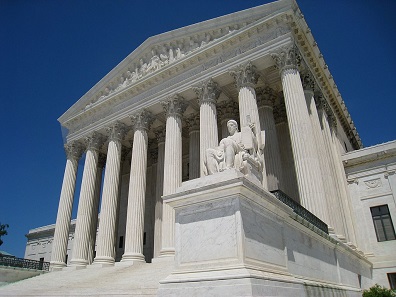September 13, 2018 – The landscape of online shopping in the United States changed at the end of June of 2018 with a Supreme Court 5-4 decision in the South Dakota v. Wayfair case. The Court’s decision is that states can now require online retailers beyond their borders to collect sales-tax revenue from consumers. While most news reports covering the decision refer to “internet sales” subject to states sales-tax, two important points are overlooked.
The Supreme Court of the United States of America.
The first is that all remote (interstate) sales are subject to the decision, not just internet sales. For example, sales across state lines could be taxed whether originating from an internet transaction or initiated in any other form whatsoever and however communicated.
The second is that the Court’s opinion assumes that the consumer’s (buyer’s) residence dictates the point of collection.
The Court’s assumption as to point of collection means that a seller must find a way to deal with thousands of state and local sales-taxes instead of calculating a sale as if made in the seller’s state and local residence. Therefore, unless Congress acts, numerous sales-taxes will become targets of state legislatures, not just internet sales. More importantly, sales-taxes can be applied to anything of any kind or character, hypothetically including accounting and/or legal advice, stocks and bonds, commodities like natural gas and products moved through pipelines—an endless list. Many states have taxes on their books already that were struck down as violating interstate commerce. The Court places those laws back on the table.
The Industry Council for Tangible Assets (ICTA) has argued that Congress must do something it seldom does. It must take a lead to avoid unforeseen consequences. Federal legislation is needed to “build a fence” around appropriate state laws affecting interstate commerce.
The full transcript of the ruling has been published on the Supreme Court page. Those who do not want to read through dozens of pages of legal jargon will want to read this more detailed report and analysis published by Forbes Magazine. CBS News has also attempted to explain what this means for consumers in the United States.
To learn more about the non-profit association ICTA that represents the rare-coin, currency, and precious-metals communities, visit their website.





